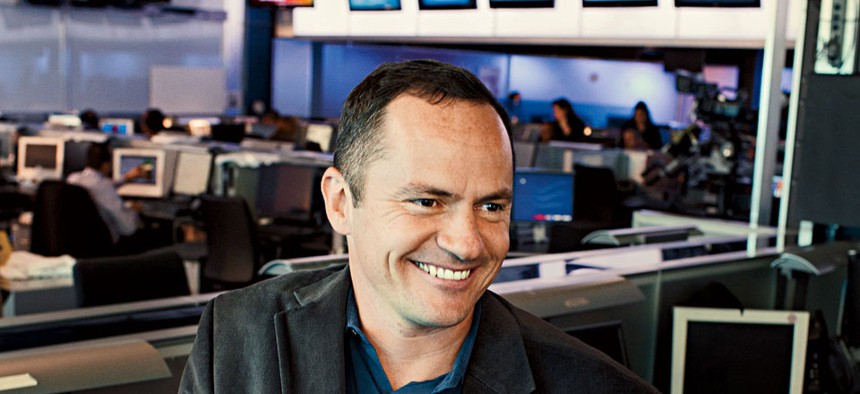
Melissa Golden
Messages to the Mid-East
Davin Hutchins helps a VOA offshoot tap the Arab world’s digital progress.
Among many changes in the Arab world during the past several tumultuous years is one that fits in the palm of a human hand. The proliferation of mobile devices, increasingly affordable and conducive to two-way interactivity, has not gone unnoticed by the U.S. government’s international broadcasters.
Coolly positioned to drive this transformation is Davin Hutchins, Web director for the Middle East Broadcasting Networks, based in Virginia, a grantee of the Broadcasting Board of Governors. Hutchins, 43, learned Arabic at the American University in Cairo and honed his skills at the Voice of America, CNN and a San Francisco technology startup.
In the Middle East, “we’re seeing an explosion of digital literacy,” he says. Facebook reports 56 million active users in the region, and mobile devices drive 44 percent of the Web traffic to U.S. Arabic broadcasts, Google Analytics show.
Unlike its sister TV and radio networks, Hutchins’ digital division “lacks boots on the ground, so we’re attentive to social media and to videos that already exist,” he says. After the July uprising in Egypt that overthrew President Mohamed Morsi, hundreds of protesters were killed by the Army, and one of his reporters assembled bystanders’ videos to create a forensic story.
To balance government-controlled media in Arab countries, Hutchins’ 20 writer-editors share tweets received inside their borders. In 2012, they pushed out coverage of the U.S. election campaign, conducting a Facebook poll on who would be better for the Middle East, President Obama or Mitt Romney. “The Arabs don’t agree with U.S. policy, but they love our culture,” Hutchins says. “You can’t tell that story by spouting policy. You have to have the conversation.”
NEXT STORY: Laying Down the Law







